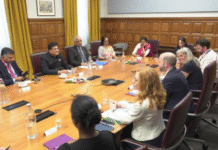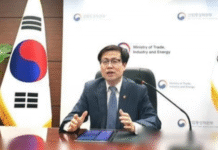By Francis Kokutse
ACCRA– Indian realty company Swami India International has invested more than $50 million to help construct affordable houses in three African countries, Gambia, Senegal and Ghana, the company’s project manager, Tarun K. Singh, has said.
“Last year, the African Development Bank (AfDB) said Africa was growing with an urbanization rate of 3.4 percent, with cities across the continent experiencing the fastest urban growth rate globally. Unfortunately, it looks like this is not being matched by the ability to provide affordable houses,” Singh told IANS.

“The Swami India Group has, therefore, entered a market that has real demand and is perhaps providing what governments across the continent are not able to do,” he added.
He said the company first decided to enter the accommodation market in 2004 with an investment of $500,000 in Gambia and built 169 units and a land sale project with 177 units.
“Even this is just a tip of the iceberg of how accommodation could be solved in Gambia as like other African countries, more and more continue to be without decent accommodation,” he said.
“This increasing demand has not been met by a proportionate increase in supply, resulting in widespread shortages of affordable housing units in Africa and the proliferation of informal settlements across the continent,” the AfDB had said, adding: “The related consequences and challenges are enormous not only in economic and financial terms but also in terms of human development and social dimensions.”
It is in this context that Swami India’s decision to blaze a trail in the housing market must be seen as an effort to assist governments in the countries where the company is operating and solve a deepening social problem, Tarun Singh said.
Though “the assistance from the governments has been significant,” he was quick to add that there have been challenges as the company prepares to venture in Sierra Leone and Liberia.
“We are not daunted,” he said, adding he would encourage other Indian companies to invest on the continent because “Africa has potential and it’s a good time to invest in Africa”.
Though there is huge deficit in the sector, the poor have been hard hit because of affordability. The AfDB’s manager of the research department, Issa Faye, has identified the “poor and lower middle-income families, including those with irregular incomes in the informal sector” as remaining a key challenge to the continent’s housing finance market.
To solve the problem, he has identified Morocco’s Fonds de garantie pour populations revenus modestes et non reguliers (FOGARIM) guarantee scheme, India’s GRUH Finance and Colombia’s Fondo Nacional de Garant as successful business models which demonstrate that lending to informal sector workers may be feasible.
Tarun Singh, however, said there are some problems that must be solved immediately if investors are to be lured to enter the sector. These include the lack of skilled workers to be engaged on large-scale housing projects, high interest charged by banks and the lack of utility services such as roads, water and electricity.







